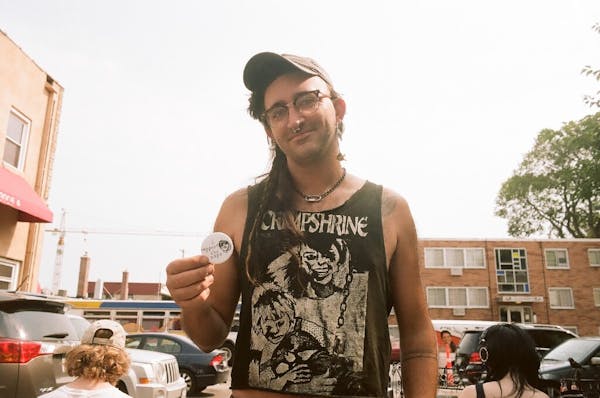Local leaders heralded the announcement Tuesday that Minneapolis had been chosen to host the 2018 Super Bowl.
"I really think it puts Minneapolis and the Twin Cities in the national and international spotlight for that period of time," said Downtown Council president Steve Cramer. "And we'll have a lot to showcase by then."
Steve Cramer, president of the Downtown Council, said the Super Bowl is a much larger event than when it last came to Minneapolis in 1992.
In the same vein, he said, the city has also transformed since that period. Minneapolis will be boasting a new Nicollet Mall, downtown high rises and transit improvements in 2018.
"Just as we won't recognize the Super Bowl, people won't recognize Minneapolis who perhaps haven't been here, haven't paid attention since back in those days," Cramer said.
Former Mayor R.T. Rybak, who was instrumental in securing the stadium deal, said the city should showcase its winter culture.
"My hope is that we could pitch this as a northern Super Bowl that's all about events like the City of Lake Loppet and the Winter Carnival and Crashed Ice and the Pond Hockey Championship," Rybak said. "An entire winter that shows the world that we get up and out and enjoy our theater of seasons."
He added that the event will serve as a "big bang" to the local hospitality industry.
[It's] the single best Robin Hood industry we have," Rybak said. "It's about people who are washing the dishes in the kitchen, making the beds in the hotel, driving the taxi or the bus."
Council President Barb Johnson, who helped wrangle the votes to approve the stadium, said it is particularly important that the event will fall during the sluggish winter months for hotels
"It's in a down time for us. That's not our hot time," Johnson said. "So this is really a plus for the hospitality industry and everybody that lives off of these big events."
Johnson added that studies by Meet Minneapolis have found that new visitors generally enjoy themselves and make a return trip. "The hardest thing is getting them here the first time," Johnson said.
Gov. Mark Dayton thanked the team who arranged the pitch to bring the Super Bowl to town.
"Hosting the Super Bowl will provide a terrific opportunity to showcase Minnesota to the world," Dayton said. "It will also bring major economic benefits to our state."
Just what those economic benefits are remain unclear. Cramer said he has heard between $80 million and $500 million.
"I'm not qualified to say what it is," Cramer said. "But as a matter of common sense, you can't imagine that literally tens of thousands of people going to descend on your town who wouldn't hav eotherwise been there in early February without having a substantial positive economic impact."
Minneapolis Mayor Betsy Hodges is expected to host a news conference outside City Hall at 5:30 p.m. this afternoon.
"I am beyond pumped," said council member Jacob Frey, who represents the stadium area. "Bring it on."
Frey imagines visitors taking the light rail into downtown, where they see a newly renovated Nicollet Mall, a new streetcar line and The Yard beside the new Vikings stadium.
"This could be the springboard for our city into world-class status," Frey said.
In heated western Minn. GOP congressional primary, outsiders challenging incumbent

Minnesota Sports Hall of Fame: A class-by-class list of all members

This retired journalist changed professional wrestling from Mankato

